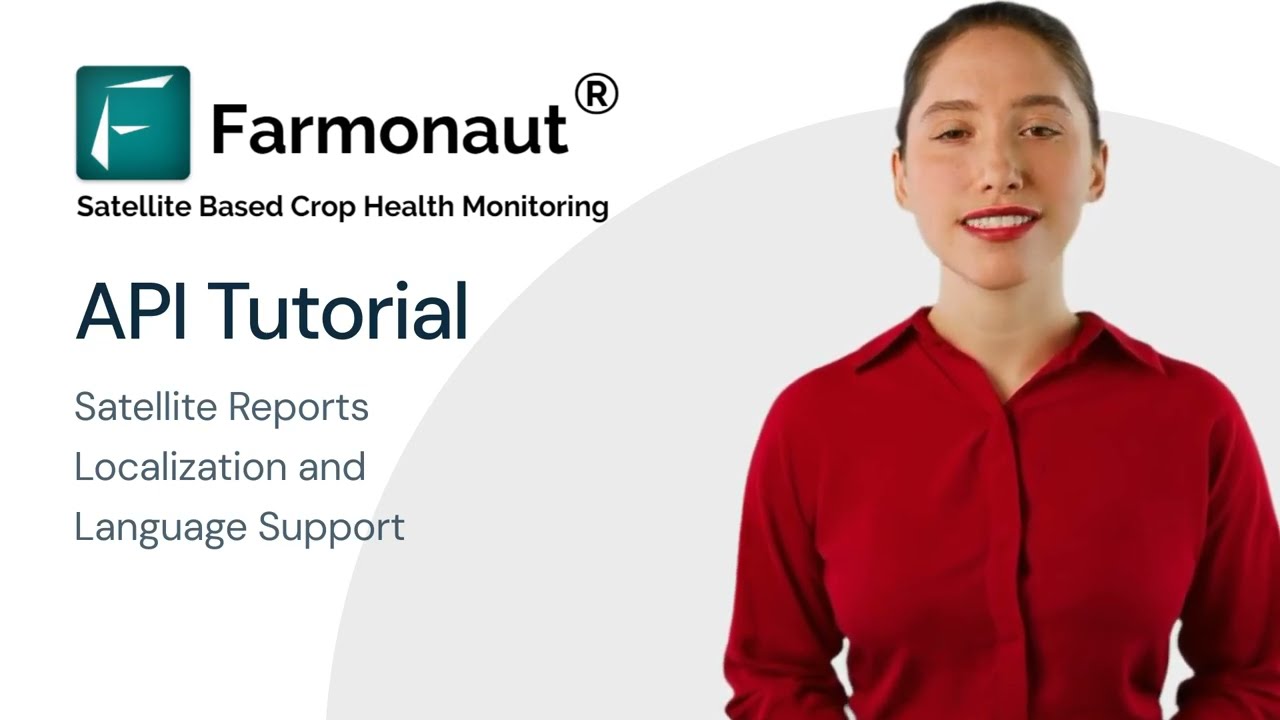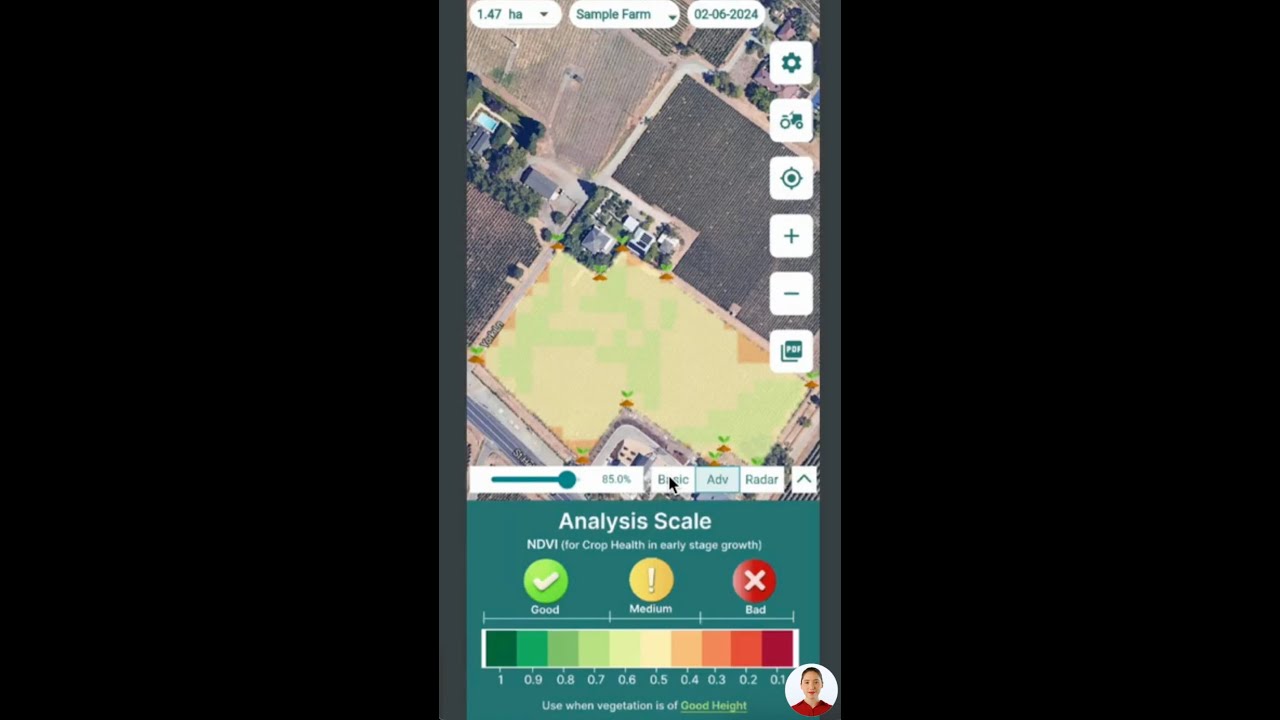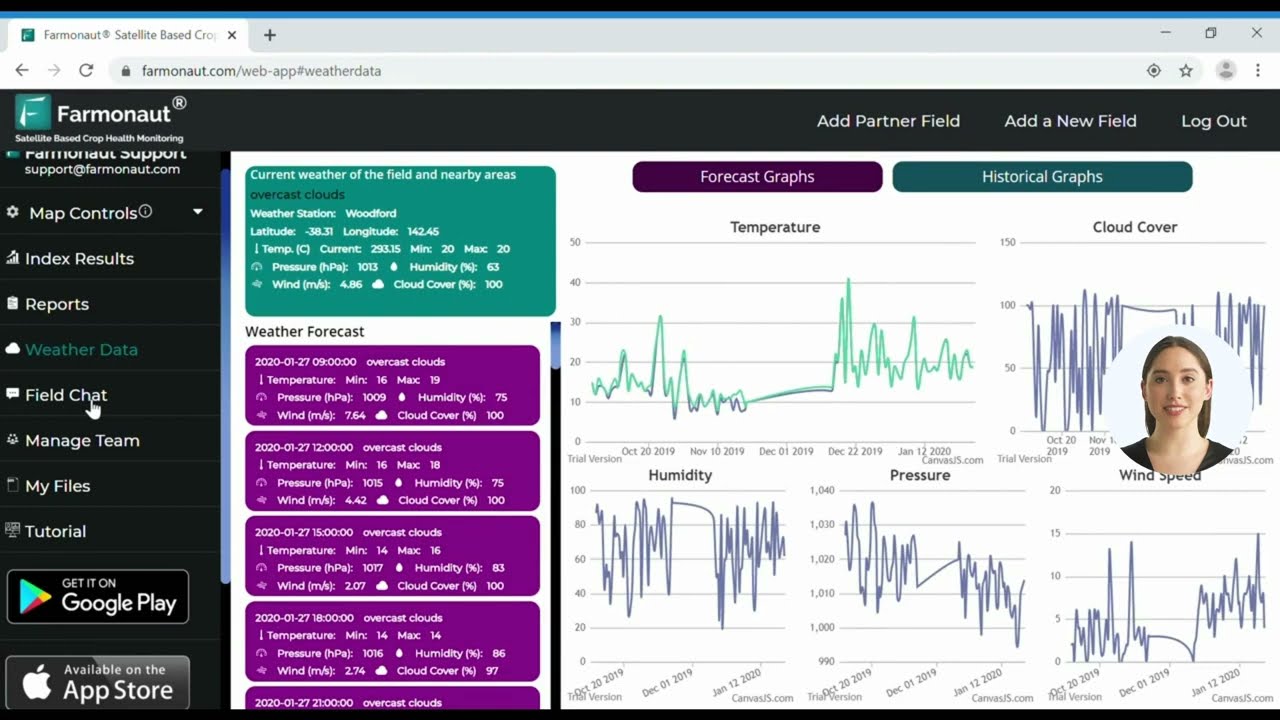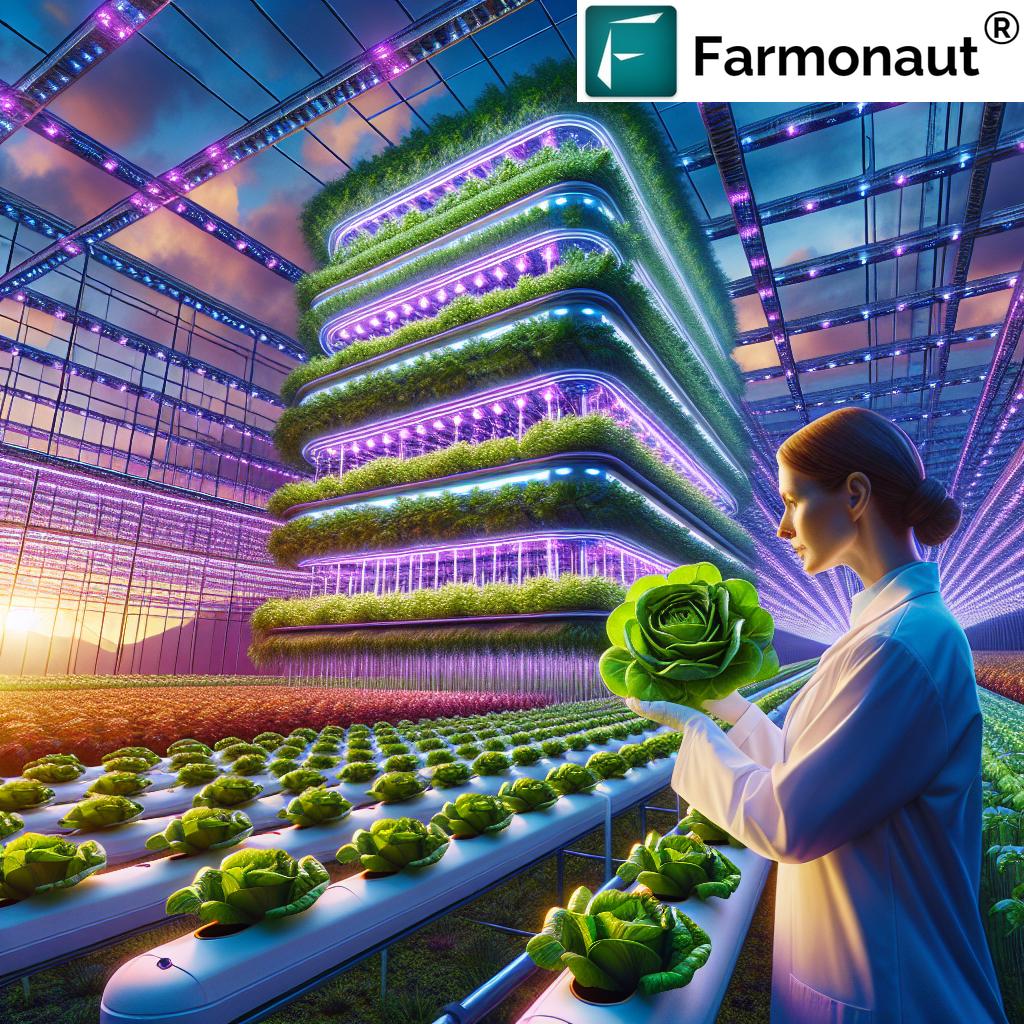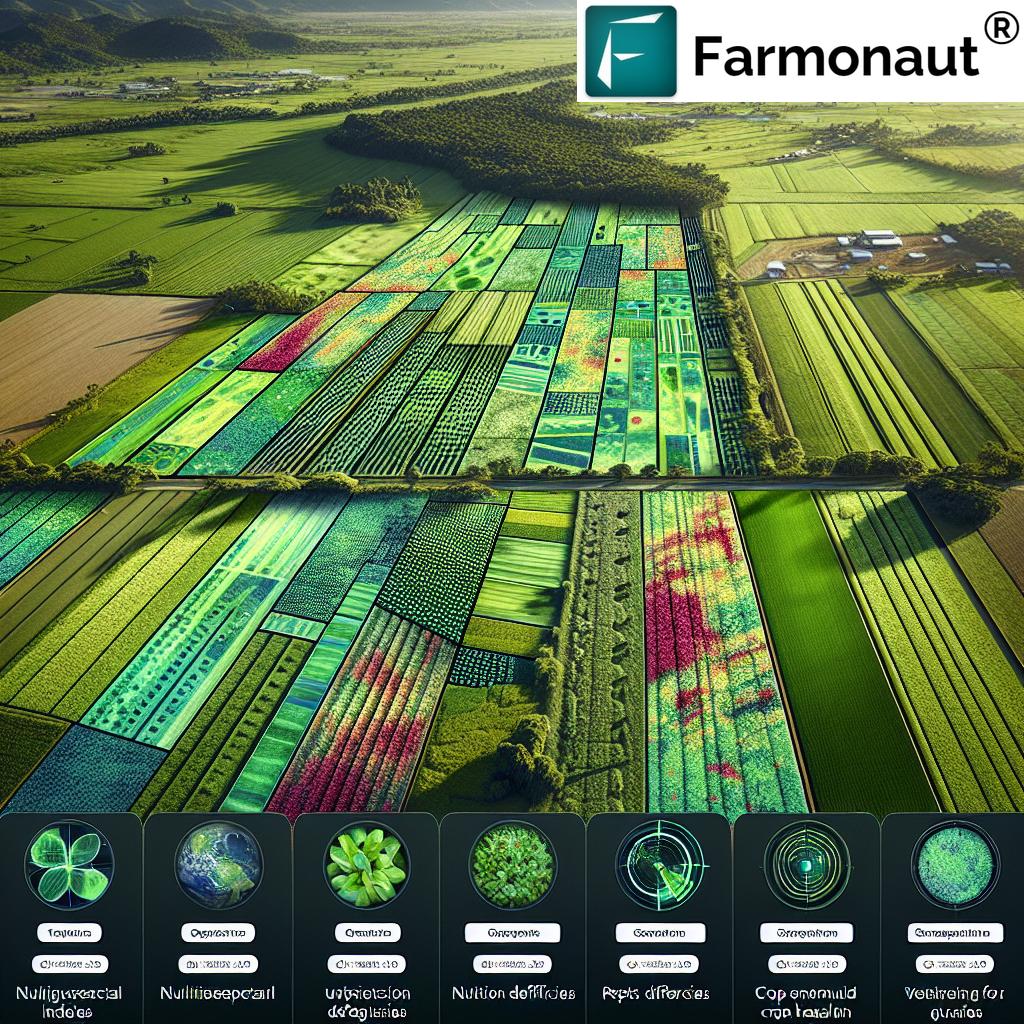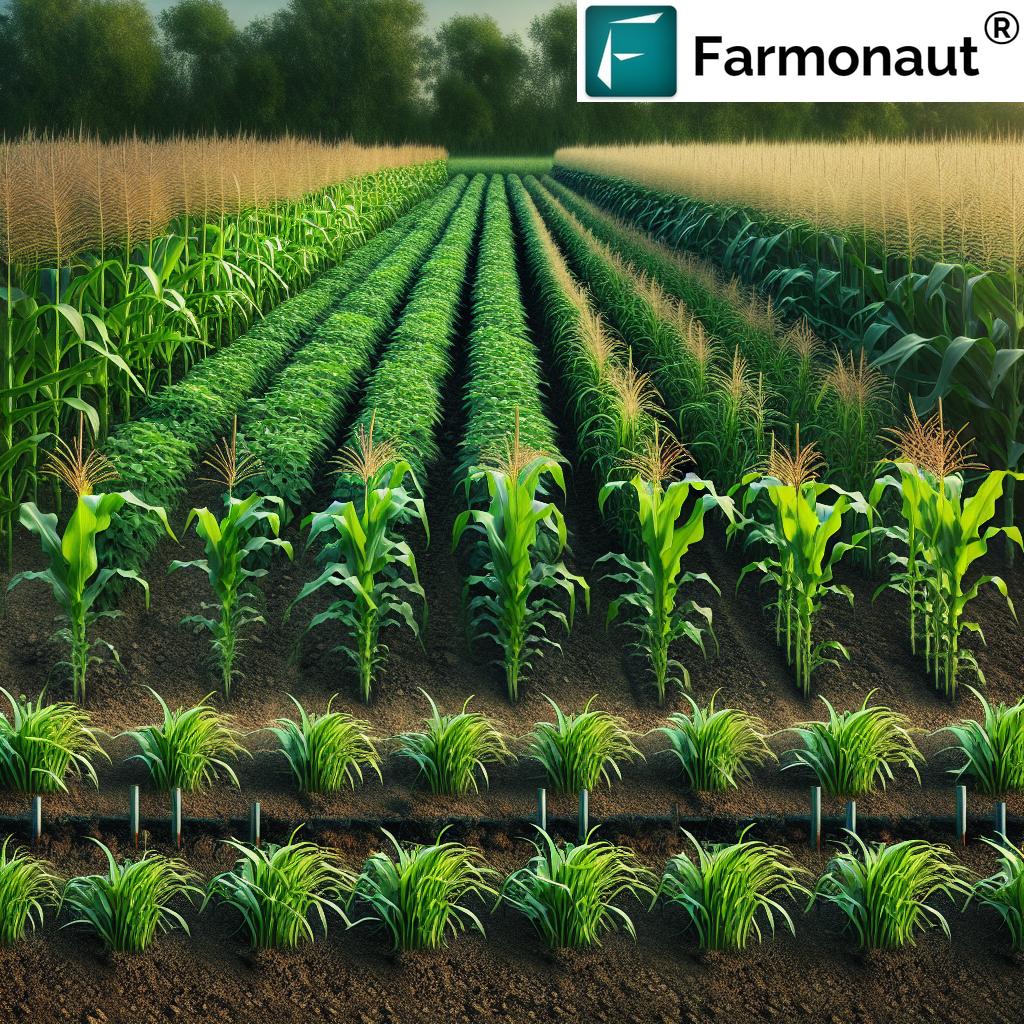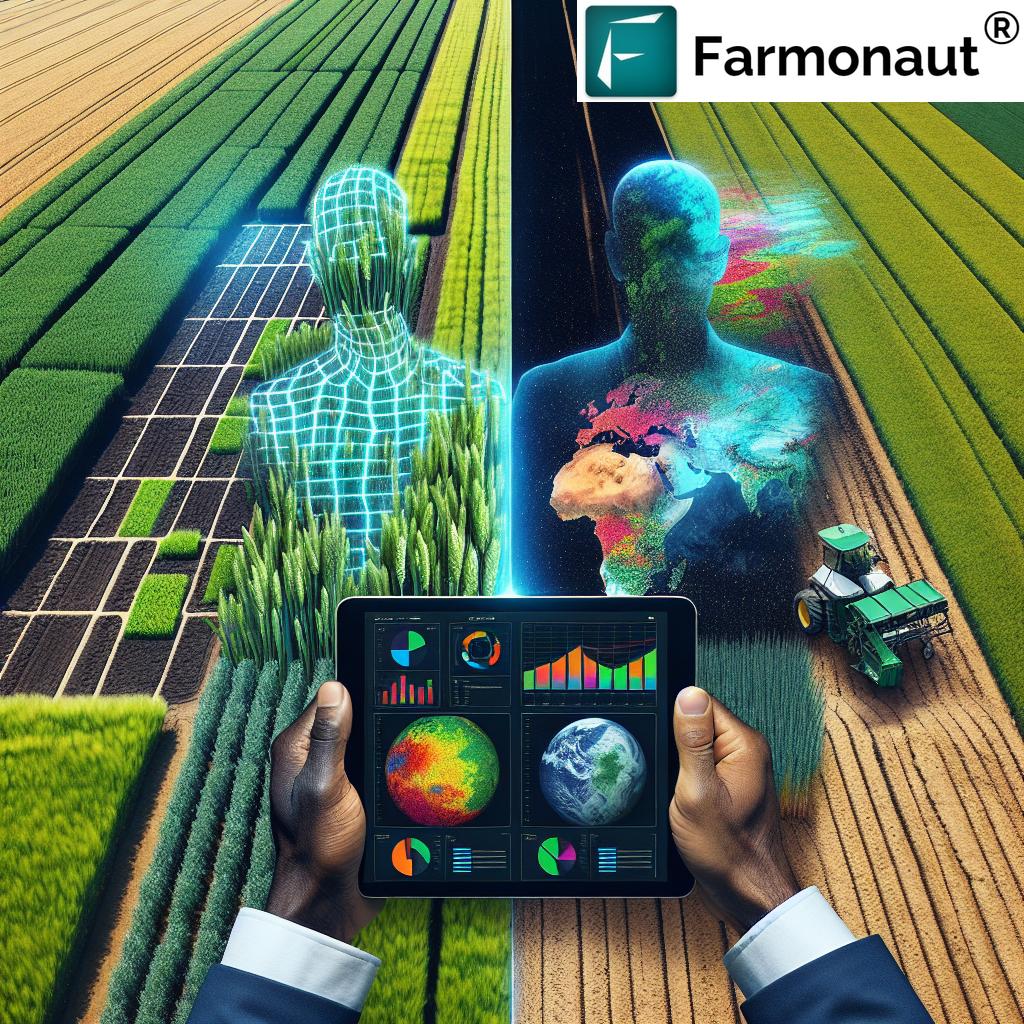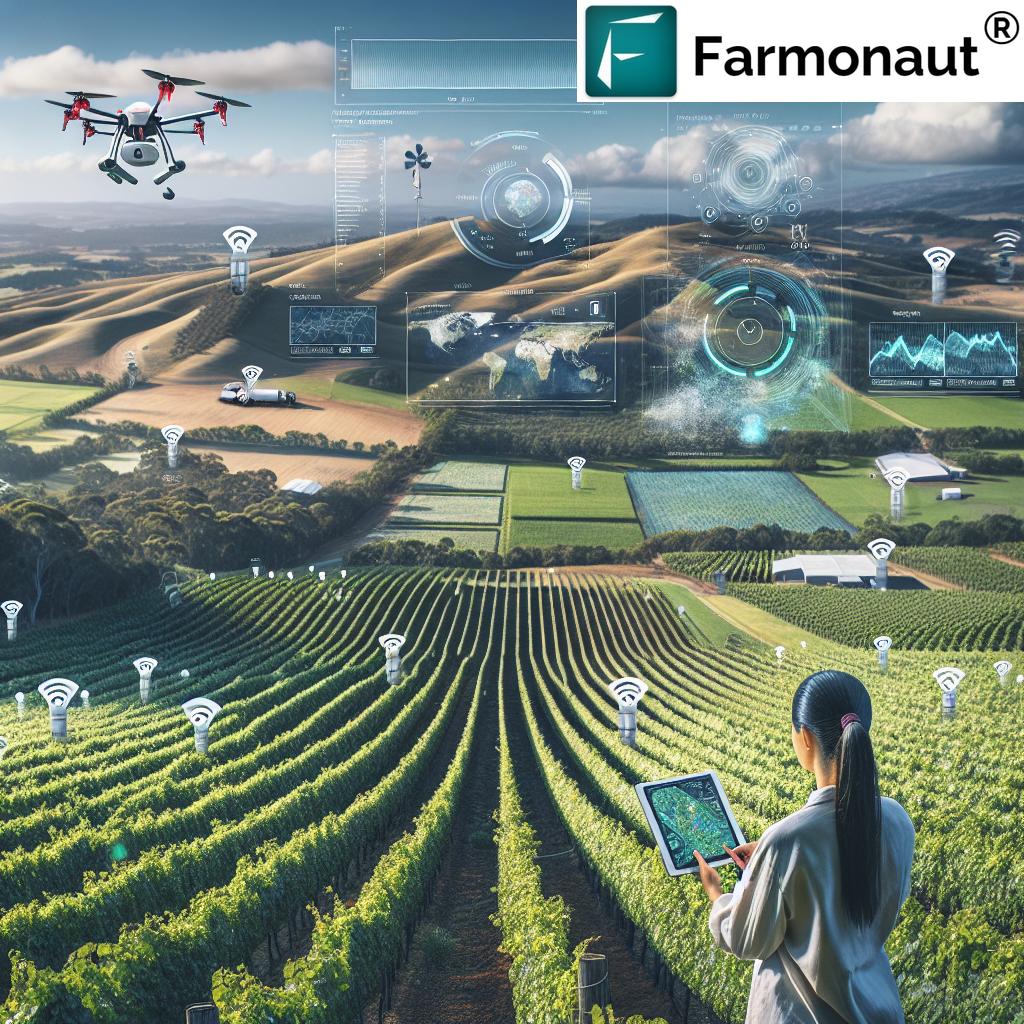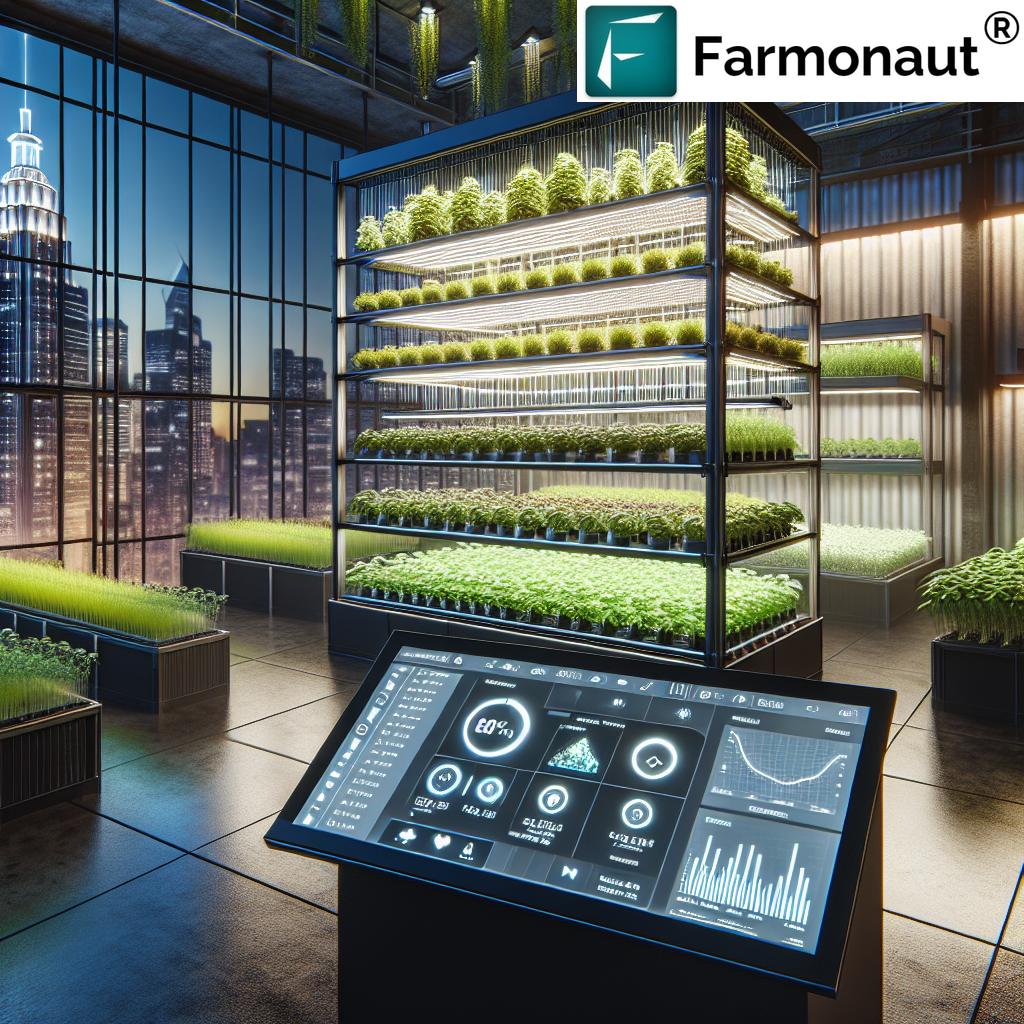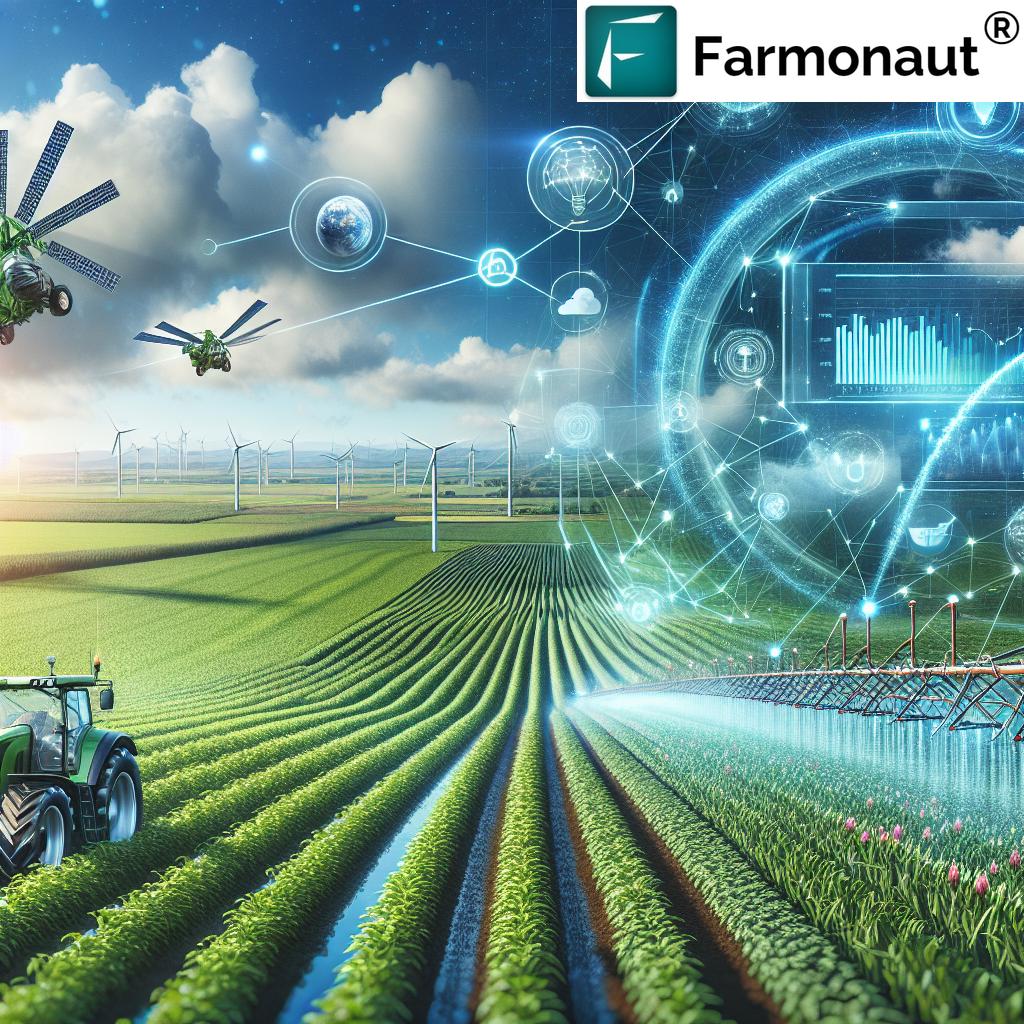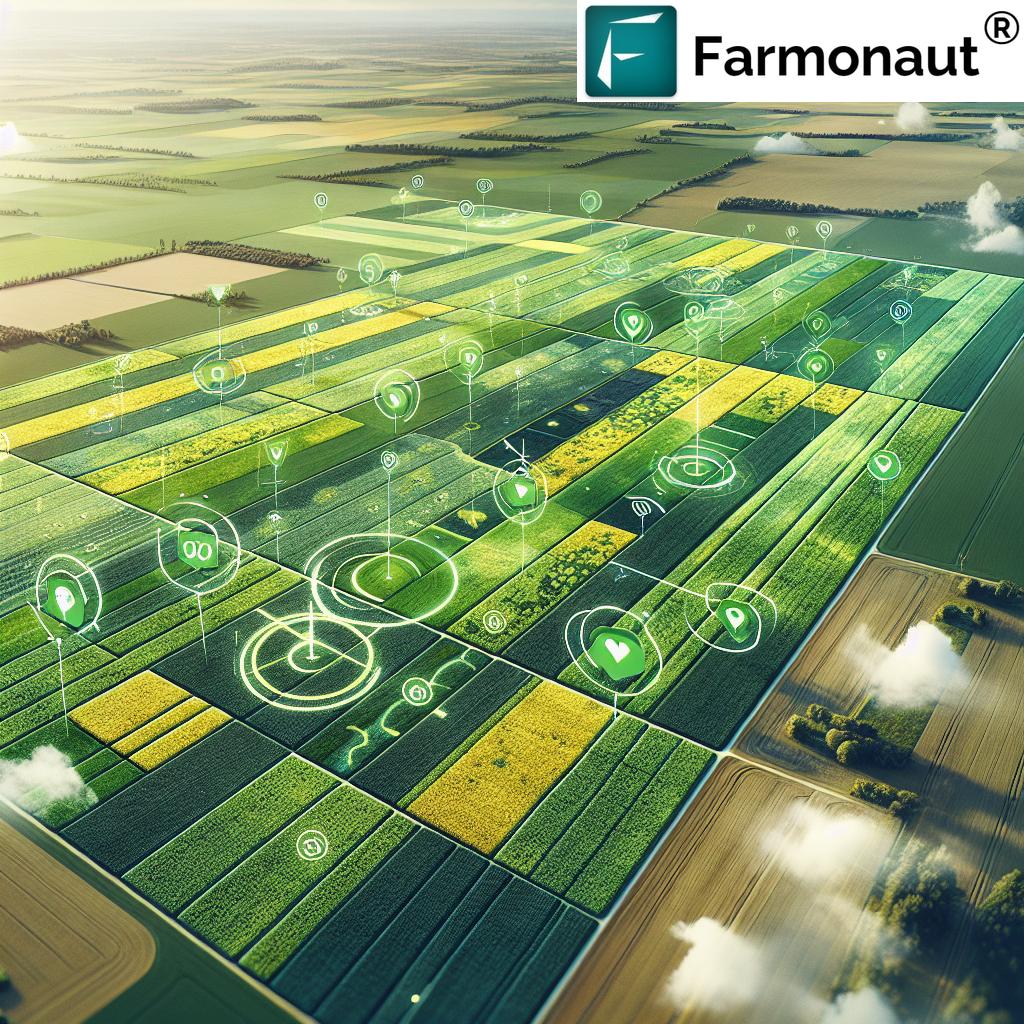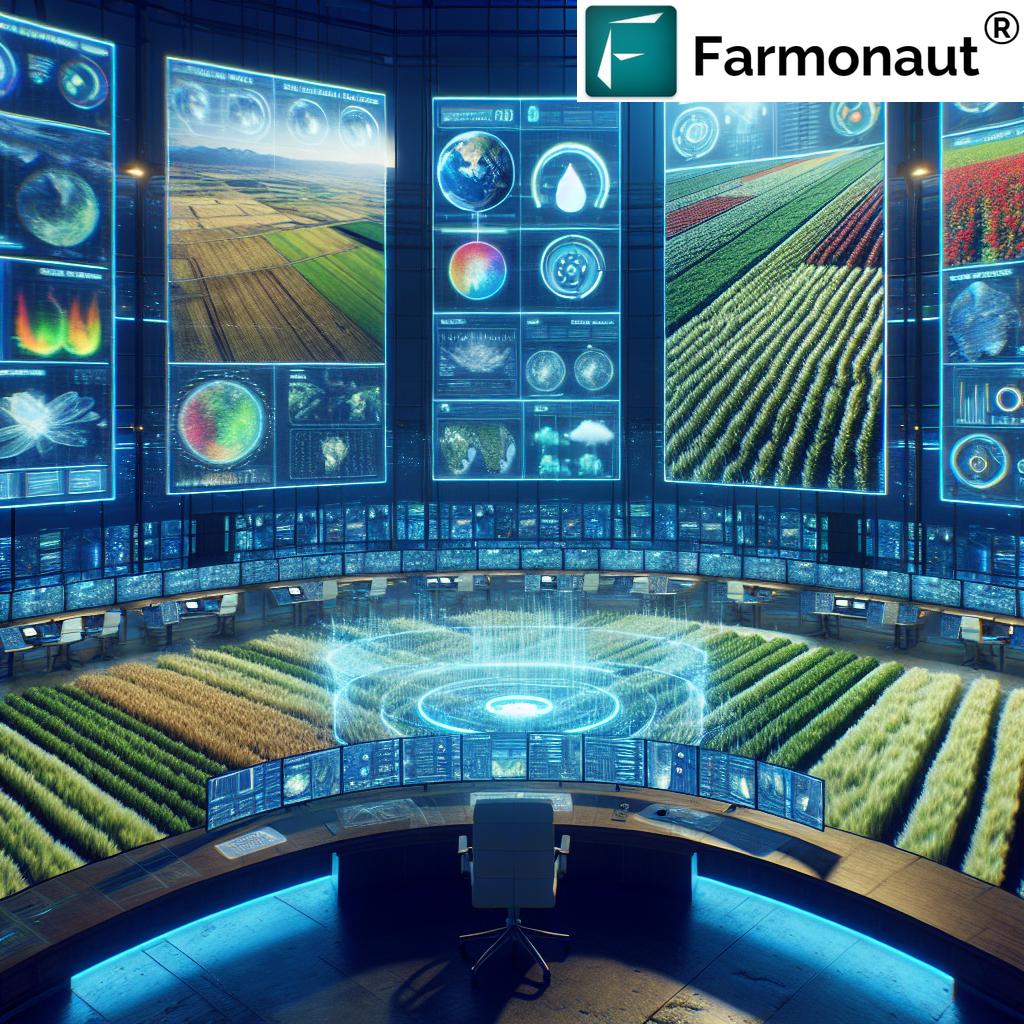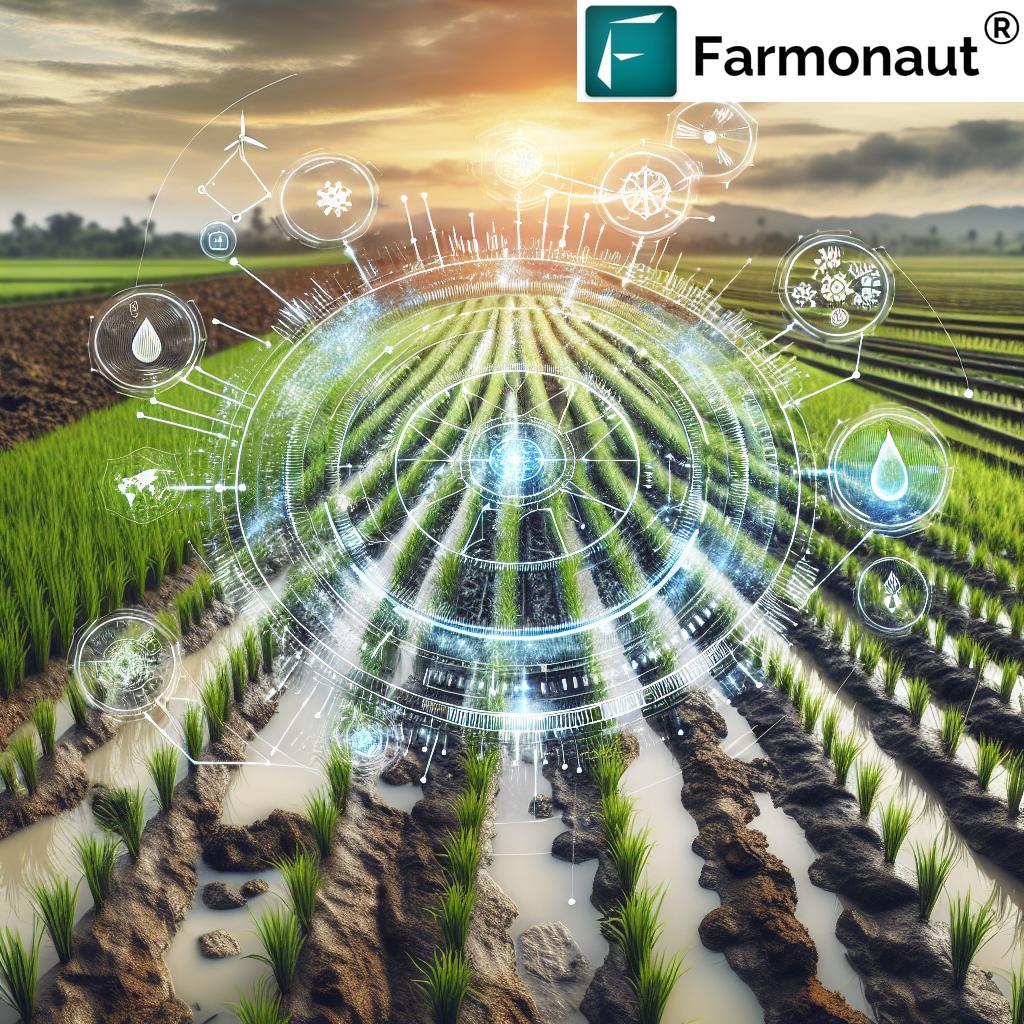Revolutionizing Precision Farming: How Farmonaut’s NIRS Technology Optimizes Crop Analysis and Nutrient Management
“NIRS technology enables real-time analysis of up to 10 different nutrient parameters in crops simultaneously.”
In the ever-evolving landscape of modern agriculture, we at Farmonaut are at the forefront of a technological revolution that’s transforming the way farmers manage their crops and optimize their yields. Our cutting-edge Near-Infrared Spectroscopy (NIRS) technology is paving the way for unprecedented precision in farming practices, offering real-time insights that were once thought impossible. As we delve into the world of advanced sensors and smart farming solutions, we invite you to explore how these innovations are reshaping the agricultural sector, enhancing productivity, and promoting sustainability.
The Power of Near-Infrared Spectroscopy in Agriculture
Near-infrared spectroscopy in agriculture has emerged as a game-changing technology, offering farmers and agricultural professionals a non-destructive, rapid, and highly accurate method for analyzing crop and soil properties. This innovative approach utilizes the interaction between near-infrared light and organic matter to provide valuable insights into crop health, nutrient content, and overall quality.
- Real-time analysis: NIRS technology allows for instant assessment of crop conditions, enabling timely decision-making.
- Non-destructive testing: Samples can be analyzed without damaging the crop, preserving yield potential.
- Versatility: NIRS can be applied to various agricultural products, including grains, forages, and even liquid samples like milk or slurry.
By integrating NIRS technology for crop analysis into their operations, farmers can gain a competitive edge in today’s challenging agricultural markets. This precision farming with infrared sensors approach not only optimizes resource use but also contributes to more sustainable and environmentally friendly farming practices.
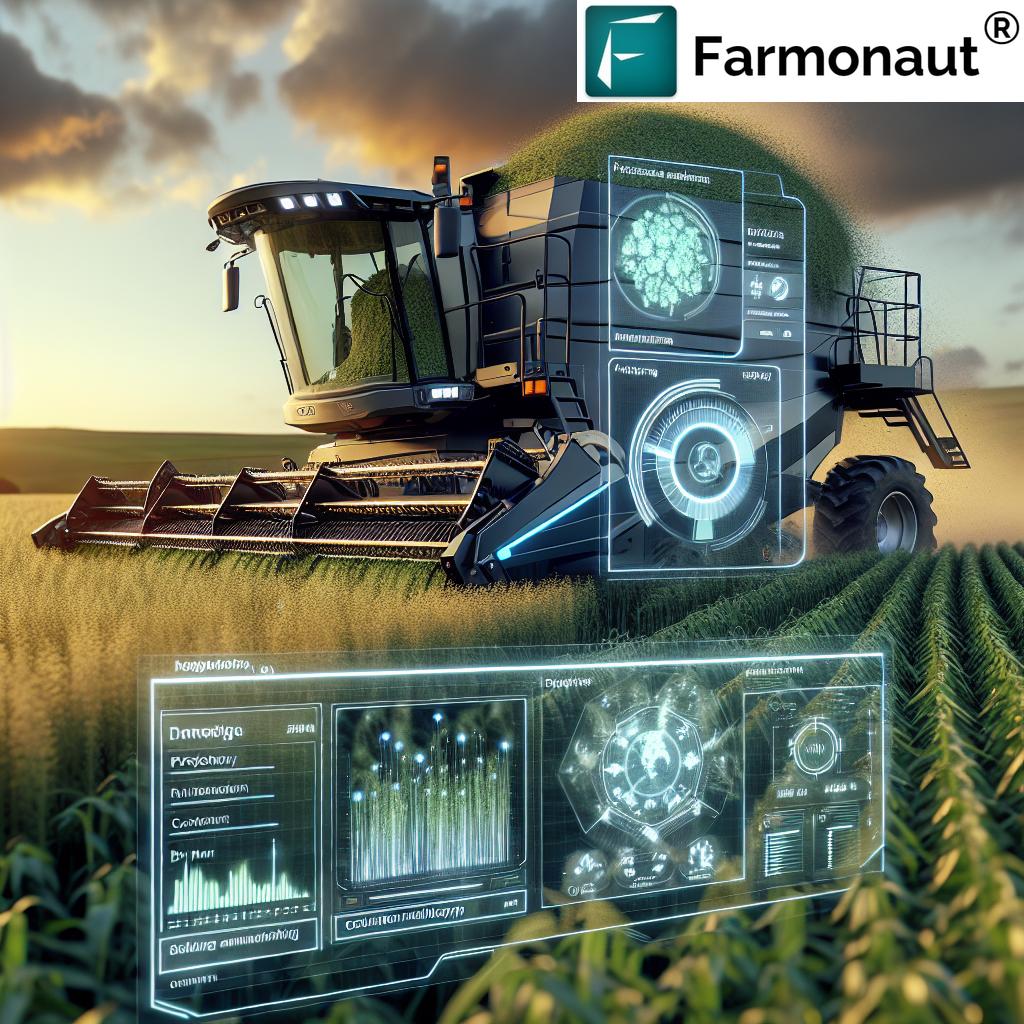
Farmonaut’s NIRS Technology: A Closer Look
At Farmonaut, we’ve harnessed the power of NIRS to develop a suite of tools that revolutionize crop management and nutrient analysis. Our advanced agricultural machinery sensors are designed to provide farmers with unprecedented insights into their crops’ health and nutritional status.
Key features of Farmonaut’s NIRS technology include:
- Real-time nutrient analysis in farming operations
- Integration with forage harvesters for on-the-go crop quality assessment
- Smart slurry management systems for precise fertilizer application
- Portable NIRS devices for farmers to conduct field-side analysis
Our commitment to innovation drives us to continuously improve our NIRS technology, ensuring that farmers have access to the most advanced tools for optimizing their crop production and management strategies.
Applications of NIRS in Precision Farming
The applications of NIRS technology in agriculture are vast and varied. Let’s explore some of the key areas where this technology is making a significant impact:
Silage Quality Monitoring Systems
Silage quality is crucial for livestock farmers, directly impacting animal health and productivity. Our NIRS-equipped forage harvesters provide real-time analysis of key silage parameters, including:
- Dry matter content
- Crude protein levels
- Fiber composition
- Energy content
This instant feedback allows farmers to adjust harvesting practices on the fly, ensuring optimal silage quality and maximizing the nutritional value of their feed.
Grain Protein Monitoring Technology
For arable farmers, protein content in grains is a critical factor determining crop value and market potential. Our NIRS-enabled combine harvesters offer:
- Real-time protein content measurement during harvest
- Mapping of protein distribution across fields
- Data-driven decisions for grain storage and marketing
This technology empowers farmers to segregate their harvest based on quality, potentially accessing premium markets for high-protein grains.
Smart Slurry Management
Efficient use of organic fertilizers is essential for both economic and environmental reasons. Our NIRS-equipped slurry tankers provide:
- Instant analysis of slurry nutrient content
- Automated adjustment of application rates
- Precise nutrient management across fields
This level of precision ensures optimal nutrient application, reducing waste and minimizing environmental impact.
Portable NIRS Devices: Bringing Lab-Quality Analysis to the Field
“Portable NIRS devices can provide instant feed analysis results in less than 60 seconds, revolutionizing on-farm decision-making.”
One of the most exciting developments in NIRS technology is the advent of portable devices that bring laboratory-grade analysis capabilities directly to the farm. These handheld units offer numerous benefits:
- Instant feed analysis for on-the-spot ration adjustments
- Soil testing for targeted fertilizer application
- Crop quality assessment to determine optimal harvest timing
By providing farmers with immediate access to critical data, these portable NIRS devices for farmers are transforming day-to-day farm management practices.
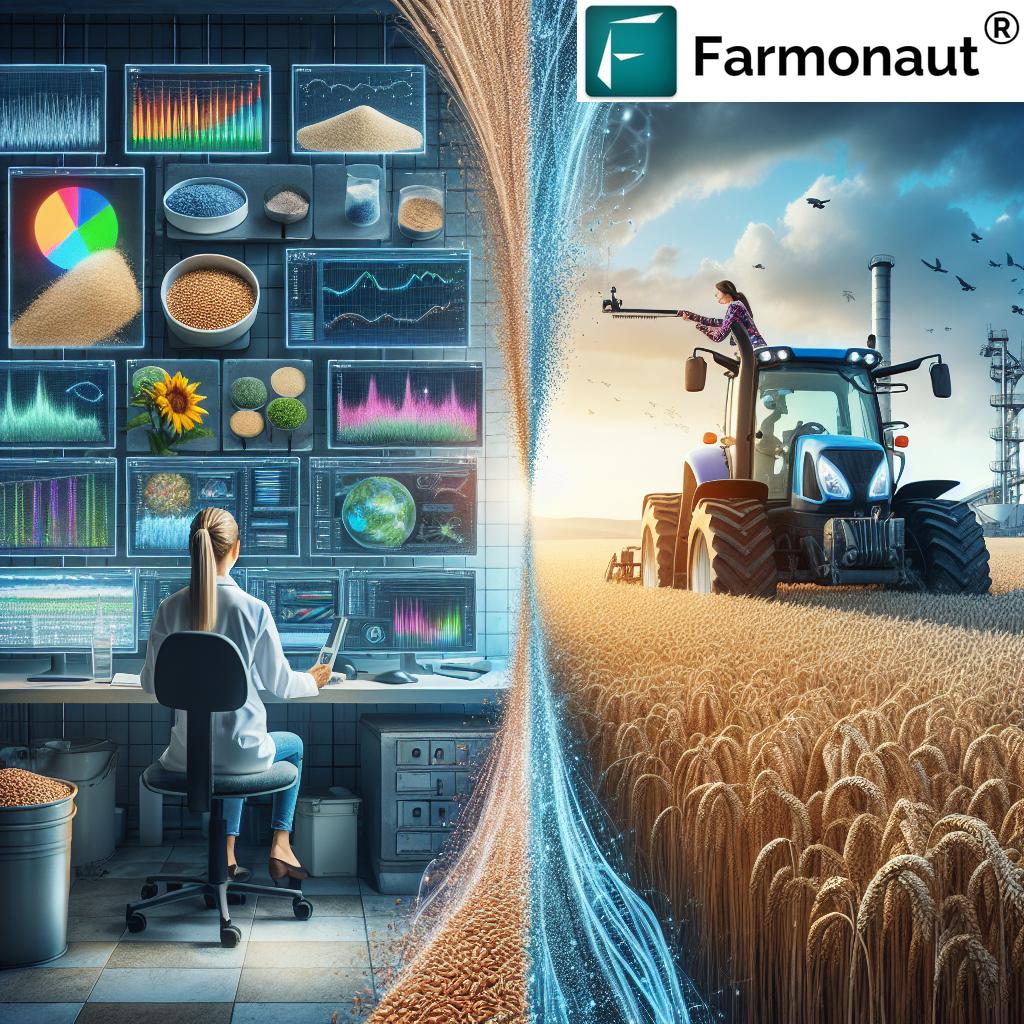
The Role of NIRS in Nutrient Management
Effective nutrient management is at the heart of successful farming operations. NIRS technology plays a crucial role in optimizing this aspect of agriculture:
- Precision fertilizer application: By accurately measuring soil and crop nutrient levels, farmers can apply fertilizers with pinpoint accuracy, reducing waste and improving efficiency.
- Crop quality enhancement: Real-time monitoring of nutrient uptake allows for timely interventions to improve crop quality and yield.
- Environmental stewardship: Precise nutrient management helps minimize runoff and leaching, protecting water resources and reducing the environmental footprint of farming operations.
Our NIRS technology empowers farmers to make data-driven decisions about nutrient application, leading to more sustainable and profitable farming practices.
Integrating NIRS with Other Precision Farming Technologies
The true power of NIRS technology is realized when it’s integrated with other precision farming tools. At Farmonaut, we’re pioneering this integration to create comprehensive farm management solutions:
- GPS mapping: Combining NIRS data with GPS coordinates creates detailed field maps of nutrient distribution and crop quality.
- Variable rate technology (VRT): NIRS data feeds into VRT systems for precision application of inputs across fields.
- Farm management software: Our NIRS devices seamlessly connect with farm management platforms, allowing for data-driven decision-making at every level of operation.
This holistic approach to precision agriculture ensures that farmers can maximize the benefits of NIRS technology across their entire operation.
The Future of NIRS in Agriculture
As we look to the future, the potential applications of NIRS technology in agriculture continue to expand. Some exciting developments on the horizon include:
- Advanced machine learning algorithms: Improving the accuracy and range of NIRS analysis through sophisticated data interpretation.
- Integration with autonomous farming systems: NIRS sensors guiding self-driving tractors and robots for ultra-precise crop management.
- Expanded crop and soil analysis capabilities: Developing new NIRS applications for an even wider range of agricultural parameters.
At Farmonaut, we’re committed to staying at the forefront of these technological advancements, ensuring that our farmers have access to the most cutting-edge tools available.
NIRS Technology Applications in Precision Farming
| Application Area | NIRS Technology Used | Key Benefits | Estimated Efficiency Gain |
|---|---|---|---|
| Crop Nutrient Analysis | Handheld NIRS Scanners | Real-time nutrient status assessment, targeted fertilization | 20-30% |
| Silage Quality Monitoring | NIRS-equipped Forage Harvesters | Optimal harvest timing, improved feed quality | 15-25% |
| Grain Moisture Content | Combine-mounted NIRS Sensors | Precise harvest moisture data, reduced drying costs | 10-20% |
| Soil Health Assessment | Portable NIRS Soil Analyzers | Rapid soil nutrient profiling, improved soil management | 25-35% |
| Fertilizer Management | NIRS-equipped Slurry Tankers | Precise nutrient application, reduced environmental impact | 30-40% |
Empowering Farmers with Farmonaut’s NIRS Solutions
At Farmonaut, we’re dedicated to making advanced NIRS technology accessible to farmers of all scales. Our range of solutions includes:
- Integrated NIRS systems for agricultural machinery
- Portable NIRS devices for on-the-spot analysis
- Cloud-based data management platforms for storing and analyzing NIRS data
- Training and support services to help farmers maximize the benefits of NIRS technology
We believe that by putting these powerful tools in the hands of farmers, we can drive significant improvements in agricultural productivity and sustainability.
Explore our range of NIRS solutions:
For developers interested in integrating our NIRS technology into their own applications, we offer comprehensive API solutions. Learn more about our API services and access our API Developer Docs.
The Economic Impact of NIRS Technology in Farming
The adoption of NIRS technology in farming operations can have a significant economic impact:
- Reduced input costs: Precise application of fertilizers and other inputs minimizes waste and overuse.
- Improved crop quality: Real-time monitoring enables interventions that enhance crop value.
- Increased operational efficiency: Instant analysis reduces the need for time-consuming lab testing.
- Access to premium markets: Detailed quality data can help farmers target high-value market segments.
While the initial investment in NIRS technology may seem substantial, the long-term benefits often result in a positive return on investment for farmers.
Overcoming Challenges in NIRS Adoption
Despite its many benefits, the adoption of NIRS technology in agriculture faces some challenges:
- Initial cost: High-quality NIRS equipment can represent a significant investment for some farmers.
- Training requirements: Proper use and interpretation of NIRS data require some level of training and expertise.
- Data management: Handling the large volumes of data generated by NIRS systems can be overwhelming without proper tools.
At Farmonaut, we’re addressing these challenges through:
- Flexible pricing options and financing solutions
- Comprehensive training programs and ongoing support
- User-friendly data management platforms integrated with our NIRS solutions
Our goal is to make the transition to NIRS-enabled precision farming as smooth and accessible as possible for farmers of all sizes.
The Environmental Benefits of NIRS in Agriculture
Beyond its economic advantages, NIRS technology plays a crucial role in promoting sustainable farming practices:
- Reduced chemical use: Precise nutrient management minimizes the overuse of fertilizers and pesticides.
- Water conservation: NIRS data can inform irrigation decisions, leading to more efficient water use.
- Soil health improvement: Accurate soil analysis enables practices that enhance long-term soil fertility.
- Lower carbon footprint: Optimized farm operations and reduced input use contribute to decreased greenhouse gas emissions.
By adopting NIRS technology, farmers can significantly reduce their environmental impact while maintaining or even improving productivity.
Farmonaut’s Commitment to Sustainable Agriculture
At Farmonaut, we’re not just providing technology; we’re partnering with farmers to create a more sustainable future for agriculture. Our NIRS solutions are designed with environmental stewardship in mind, helping farmers to:
- Optimize resource use
- Reduce waste and environmental impact
- Improve soil health and biodiversity
- Meet growing consumer demand for sustainably produced food
We believe that by embracing precision farming technologies like NIRS, we can help create a more resilient and sustainable agricultural sector.
Conclusion: The Future of Farming is Here
As we’ve explored throughout this article, NIRS technology is revolutionizing the way we approach crop analysis and nutrient management in agriculture. From real-time nutrient monitoring to precision fertilizer application, the possibilities are truly transformative.
At Farmonaut, we’re proud to be at the forefront of this agricultural revolution, providing farmers with the tools they need to optimize their operations, increase profitability, and contribute to a more sustainable future. As we continue to innovate and expand our NIRS solutions, we invite you to join us on this exciting journey towards smarter, more efficient farming.
Whether you’re a small family farm or a large agricultural operation, there’s a place for NIRS technology in your future. Explore our range of solutions and discover how Farmonaut can help you take your farming practices to the next level.
Farmonaut Subscription Options
Frequently Asked Questions
Q: What is NIRS technology and how does it work in agriculture?
A: Near-Infrared Spectroscopy (NIRS) is a non-destructive analytical technique that uses the near-infrared region of the electromagnetic spectrum to analyze the chemical composition of materials. In agriculture, NIRS is used to measure various properties of crops, soils, and agricultural inputs by analyzing how they absorb and reflect near-infrared light.
Q: How accurate is NIRS technology for crop analysis?
A: NIRS technology can be highly accurate when properly calibrated and used. Many NIRS devices offer accuracy levels comparable to traditional laboratory methods, with the added benefits of speed and non-destructive testing.
Q: Can NIRS technology be used for all types of crops?
A: NIRS technology is versatile and can be applied to a wide range of crops, including grains, forages, fruits, and vegetables. However, specific calibrations may be needed for different crop types to ensure accurate results.
Q: What are the main benefits of using NIRS technology in farming?
A: The main benefits include real-time analysis, reduced input costs, improved crop quality, increased operational efficiency, and the ability to make data-driven decisions for more sustainable farming practices.
Q: How does Farmonaut’s NIRS technology integrate with other farming systems?
A: Farmonaut’s NIRS solutions are designed to integrate seamlessly with various farming systems, including GPS mapping, variable rate technology, and farm management software. This integration allows for comprehensive data analysis and precision farming applications.
We hope this comprehensive guide has provided valuable insights into the revolutionary world of NIRS technology in agriculture. As we continue to innovate and expand our offerings at Farmonaut, we remain committed to empowering farmers with the tools and knowledge they need to thrive in the modern agricultural landscape.


